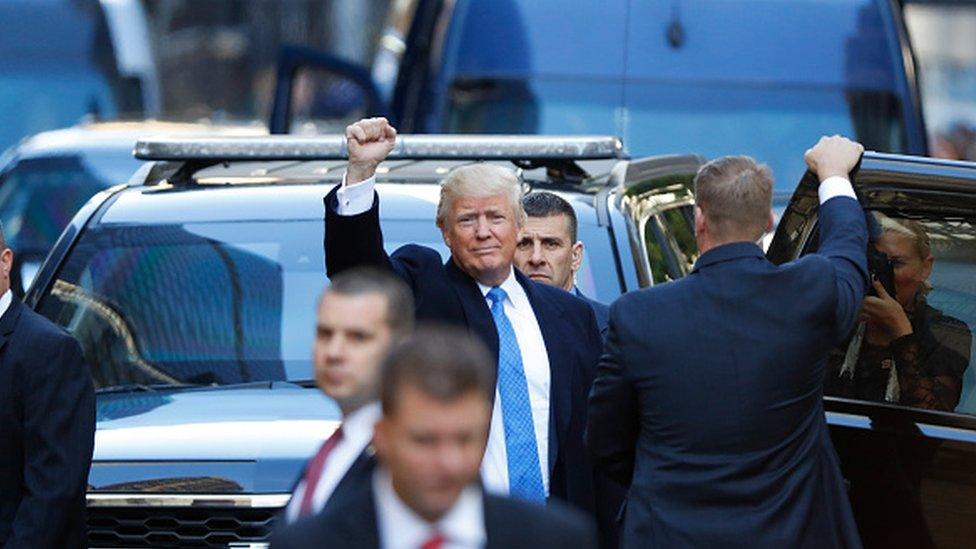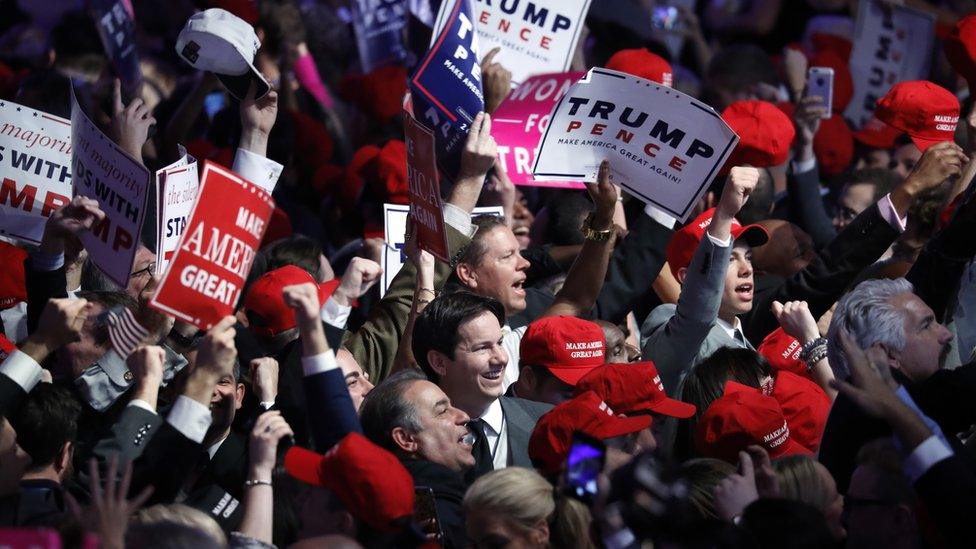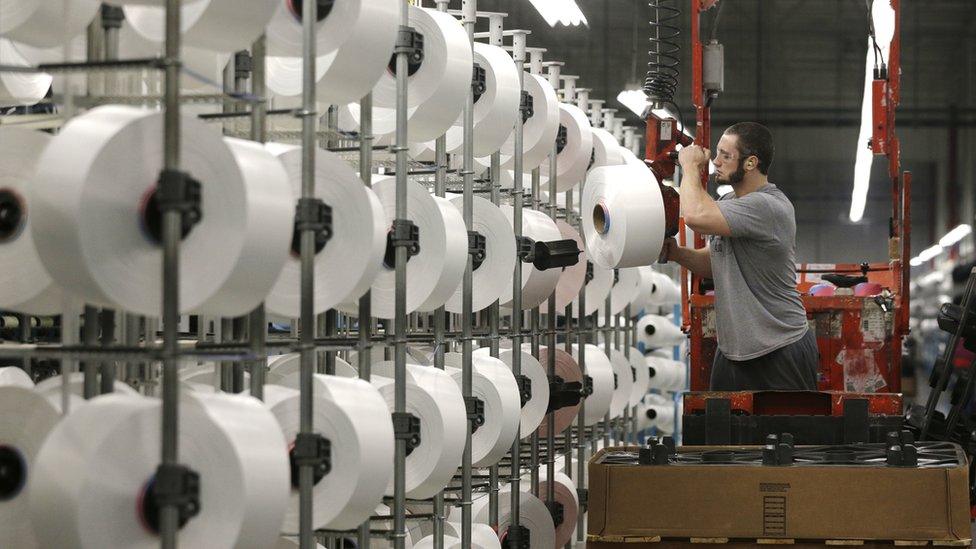Trump victory – markets spy an upside
- Published
- comments

It's been a "risk off" day.
Buy into safe haven currencies like the Japanese yen and the Swiss franc (both up today); buy into gold (the ultimate save haven harbour); sell the obvious (the Mexican peso has taken a battering).
But, trading volumes are average, the FTSE 100 is calm and there has been no rush to the stock market exit doors.
After the turmoil of Brexit, this has not been a "plus, plus, plus" day in terms of volatility.
So far, this is Brexit minus.
Investors are in wait and see mode.
Donald Trump does not become president until January.
As the markets discovered with Brexit, a vote doesn't actually change anything immediately.

An over-reaction now will just lead to a bounce back later, and investors are getting wise to that.
Company fundamentals - the world is awash with central bank stimulative cash - are as strong today as they were yesterday.
Investors also know, and some maybe hope, that Mr Trump's campaign rhetoric is just that - words - and it remains to be seen what he will actually do.
Mr Trump can certainly expect the American system of constitutional checks and balances via the Senate and the House of Representatives to kick in, lowering investor fears that a sharp yank on the economic handbrake is ahead.
Protectionism
Congress (still dominated by "the establishment" wing of the Republican Party) may rein in some of Mr Trump's more aggressive stances on policies such as free trade.
During the campaign the president elect talked of slapping 45% tariffs on Chinese imports and ripping up the North American Free Trade Agreement.
If those policies came to pass, many economists believe it would lead to a marked global slowdown.
But, as Stephen King, senior economic adviser to HSBC, told me, if America does not become as overtly protectionist as Mr Trump has suggested, then the economic news from the US may not be as gloomy as some predict.
Initially, at least.

Indeed, Mr Trump has spoken of a "fiscal stimulus" to rebuild America's infrastructure, which could mean tax cuts for businesses and some extra borrowing.
Policies that - if Mr Trump does not scare the market horses on the levels of US debt, a big ask - could provide a short term economic boost.
"The near term positive story comes from the Trump promises about infrastructure spending in the US - the possibility of that actually helps the US economy to grow a bit faster in the short term," Mr King told me.
"In the longer term the most important issue is what does Trump mean for the global economic system, in particular the global trading system?
"He has talked about hitting China with tariffs, he's talked about building that wall with Mexico, dismantling the North American Free Trade Agreement.
"All these things are pieces of architecture that have linked the world together more closely over the past few years.
"We know that the more that trade barriers have been dismantled the better it's been for global growth.
"The more that capital has been able to flow around the world, the better it's been for global growth.
"So effectively removing these things by creating walls, by creating barriers, it does create some big questions about how the global economy remains integrated in the years ahead. The more disintegration there is, the bigger the risk is of lower growth."
'Phoney peace'
This is the calculation investors are now considering.
How much of Mr Trump's campaign rhetoric will translate into actual policy?
And how much will his more conciliatory tone from this morning - he spoke of "partnership not conflict" with countries around the world - set the tone for his presidency?
As the markets watch and wait, it is for Mr Trump to decide which route he wants to travel.
Until that is clear, this somewhat phoney peace on the markets looks likely to continue.